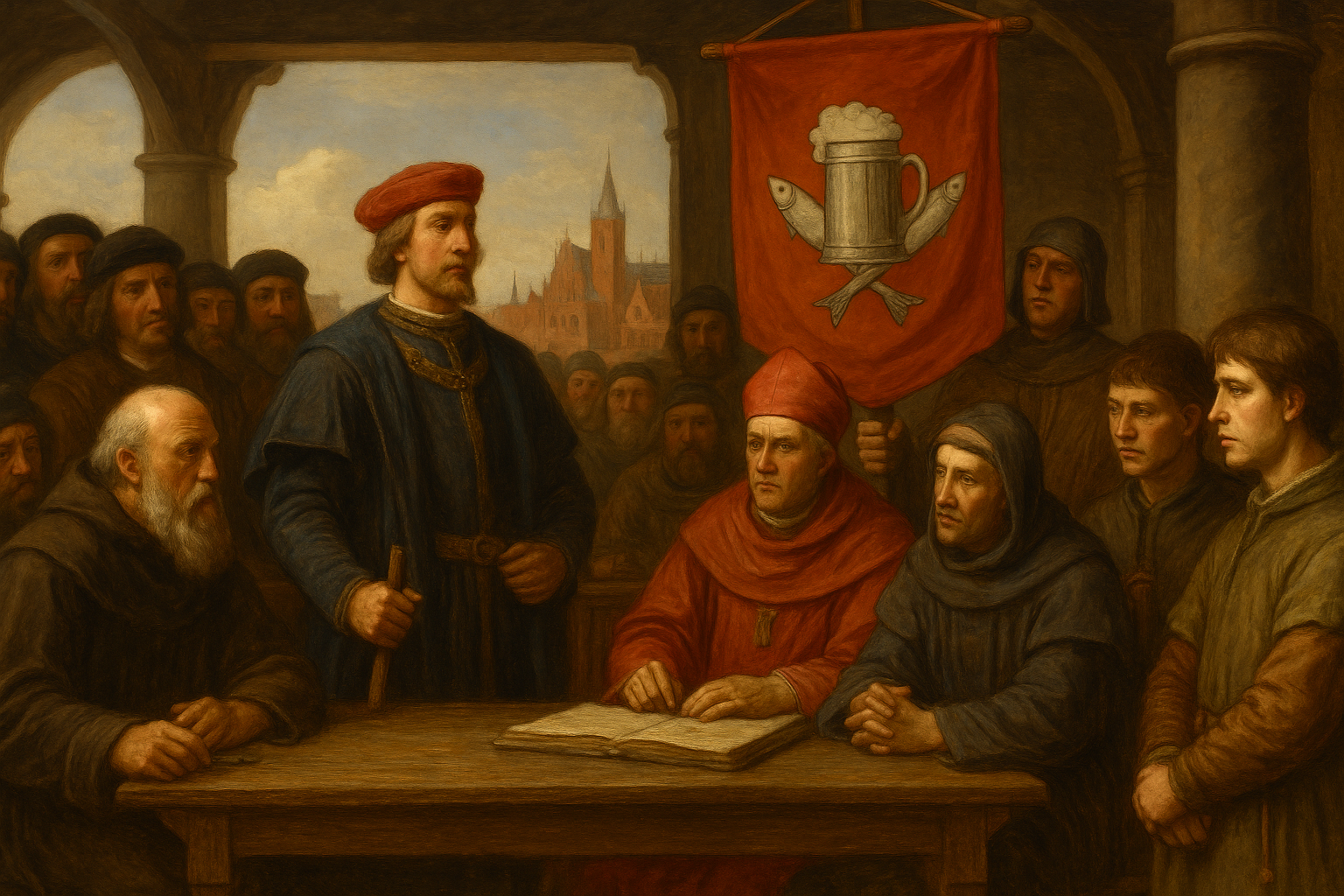Conversations on Science, Culture and Time

The Hanseatic Cask: On Commerce, Confusion, and a Porter Best Left Buried
It is a curious fact that the Hanseatic Charter of 1356 bears a faint watermark, not of ink or wax, but of aged gruit. No one dares explain why the parchment smells faintly of smoked barley and myrrh.
According to the marginalia of one particularly nervous monastic scribe, the events leading to the formation of the League began not with diplomacy or merchant acumen, but with the unexpected arrival of a weathered barrel — mislabelled, unsealed, and entirely out of place.
The barrel in question, retrieved from the hold of a Danish supply vessel anchored in Lübeck harbour, bore no name beyond a fading tag: “Monastic – Not for Lay Consumption – Property of P.” Naturally, the dockhands opened it within the hour.

The Brew That Nearly Sparked a Reformation
Brother Percival had long accepted that solitude was both a gift and a hazard. It was a gift, granting him silent communion with the Almighty; a hazard, because the mind, when left alone too long, tended to wander into weird territories. Some monks, in their idle hours, took to copying sacred texts or gardening. Brother Percival, however, had taken to brewing.
In theory, it all started innocently. A small experiment here, a slight refinement there. The other brothers at the monastery appreciated a hearty ale, and if the Church insisted on monopolizing hops, well, one had to get creative. There were other ways—unconventional ways—to craft a drink not just potent, but utterly memorable. Yet as Percival stared at his latest batch, a faintly luminescent brew bubbling away in his candlelit chamber, he found himself muttering, “I may have gone too far this time.”
